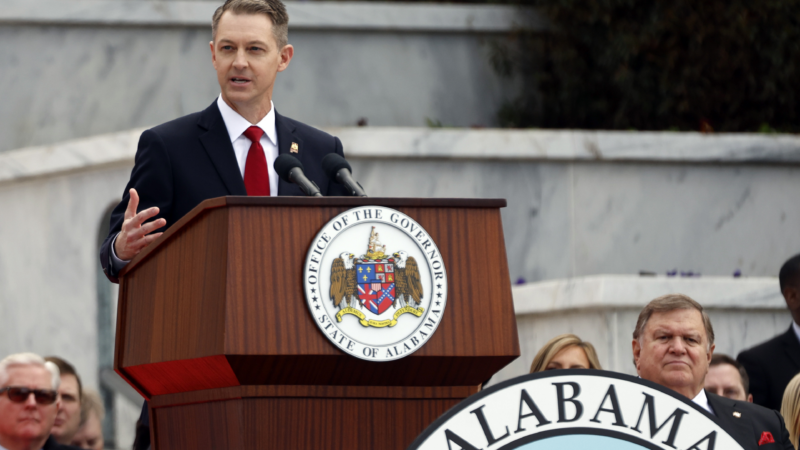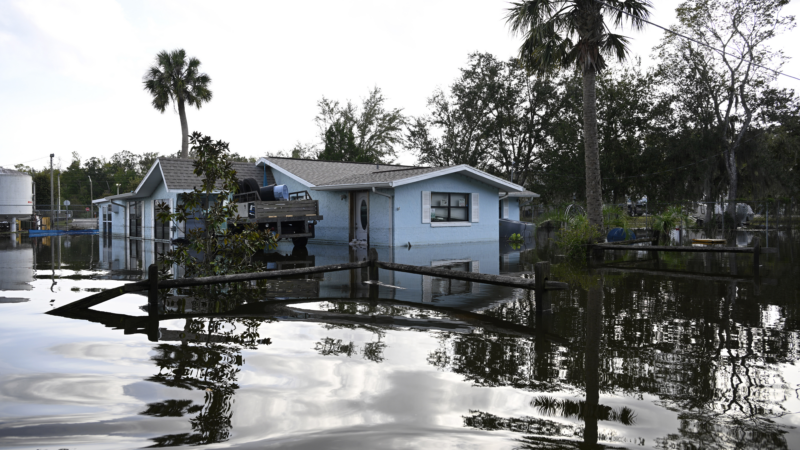Justice Department sues Alabama, claiming it purged voters too close to the election
The U.S. Justice Department filed a lawsuit Friday against Alabama and its top election official, alleging a state program violated federal law by removing voters from its election rolls too close to this fall’s general election.
While states can remove a person’s name from their lists of registered voters if, for example, the person asks to be taken off, has died or, in many places, been convicted of certain crimes, the National Voter Registration Act sets what’s known as a “quiet period” before federal elections for most states.
Alabama and other states covered by the federal law are not allowed to systematically remove names fewer than 90 days before a federal election.
On Aug. 13, 84 days before this fall’s Election Day, Alabama Secretary of State Wes Allen, a Republican, announced an effort to “remove noncitizens registered to vote” in the state. According to a press release, Allen identified and instructed county election officials to remove from their voter rolls 3,251 registered Alabama voters who had been “issued noncitizen identification numbers by the Department of Homeland Security.”
Allen also acknowledged in the press release that “some of the individuals who were issued noncitizen identification numbers have, since receiving them, become naturalized citizens and are, therefore, eligible to vote.” Those U.S. citizens would be able to update their voter registration information, the statement added.
But in a statement, the Justice Department characterized this process as a “systematic voter removal program” that has ensnared U.S. citizens, both those born in the United States and those who were naturalized, and put them on a path to no longer appearing on Alabama’s voter registration list.
In August, NPR spoke with a voter who was born in Alabama and received a notice from election officials that his registration had been flagged and he was “on the path for removal from the statewide voter list.”
In an email statement on Friday, Allen declined to comment on the Justice Department’s lawsuit.
Alabama is facing a similar lawsuit filed this month by voting rights groups and citizens in Alabama represented by attorneys led by the Campaign Legal Center.
In an earlier email responding to a notice letter from those groups, Allen wrote: “I will not bow down to threats from ultra-liberal activist groups who will stop at nothing in their quest to see noncitizens remain on Alabama’s voter rolls.”
The August effort from Allen comes as Republicans across the country call for new restrictions to ensure non-U.S. citizens aren’t casting ballots in U.S. elections. It’s already against the law for noncitizens to vote in federal elections, and proven instances of noncitizen voting are vanishingly rare.
Edited by Benjamin Swasey
A weakened Helene brings ‘catastrophic’ flooding as it crosses southern Appalachians
Helene, now a post-tropical cyclone, continues to flood parts of North Carolina and the Tennessee Valley. Dozens of storm-related deaths were reported in Florida, Georgia and the Carolinas.
At 96, duckling sculptor Nancy Schön gets political with new North End work
"The Noble Journey," outside St. Leonard's church in the North End highlights the legacy of immigrants who came to the United States.
A stranded machine transforms through motherhood in Chris Sanders’ ‘Wild Robot’
A shipwrecked robot named Roz is accidentally activated by the wild animals on an otherwise uninhabited island in The Wild Robot, an animated adventure from the makers of How to Train Your Dragon.
Helene leaves massive destruction and flooding in its path north
Tropical depression Helene continues causing widespread damage inland after making landfall as a hurricane in Florida’s Big Bend region. The Associated Press says at least 35 people have died.
Trump switched his focus to Haitian migrants in a small town in Pennsylvania
Haitian migrants in Springfield, Ohio, had an overwhelming month after Donald Trump made false statements about them. Recently, he’s focused his attention on Charleroi, Penn.
Losing GPS would cost the U.S. $1 billion a day. So why is there no backup?
A total outage of GPS could cost the country at least $1 billion a day. And there's no backup. Russia and China have backups, but the U.S. doesn’t.




